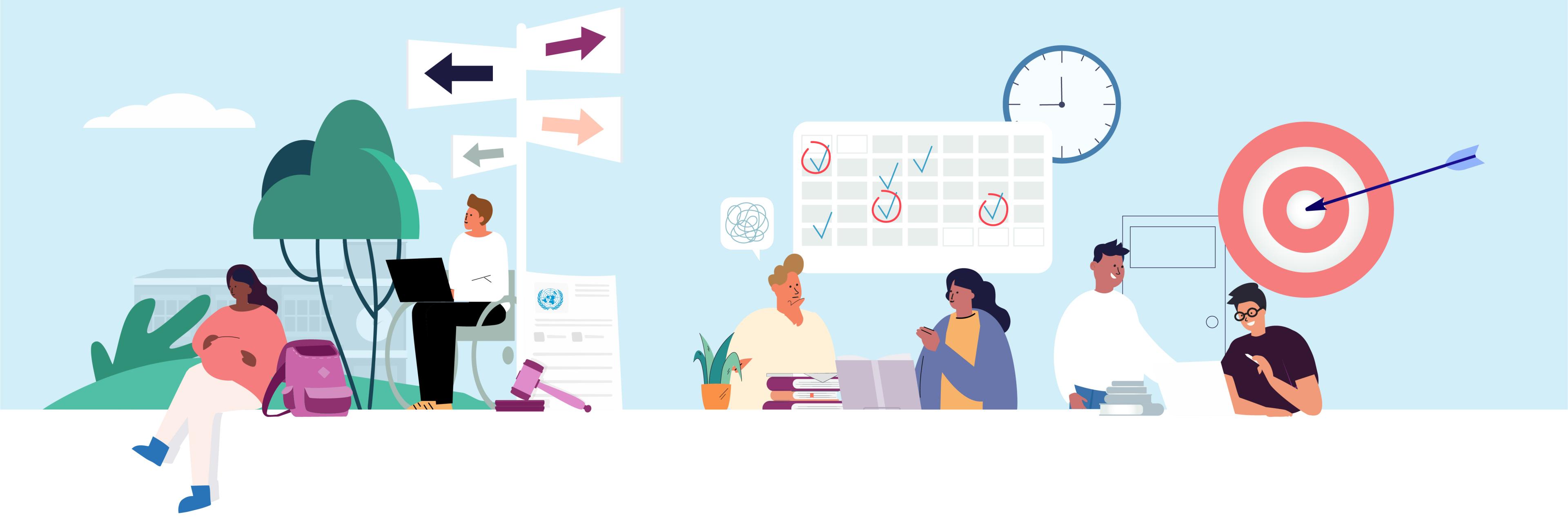
How it works in the Netherlands
Dutch higher education institutions are obliged to offer students with special needs arrangements and facilities, as long as they are reasonable. However, the educational institutions are not obliged to have all the facilities in place until a student asks for them, so most higher education institutions and universities argue that it is the responsibility of the students to arrange the facilities they need.
The Dutch definition of students with special needs:
- Students with a psychical, sensory, cognitive or physical disability (e.g. depression, dyslexia, autism and ADHD) and chronic illnesses.
- students in special circumstances. For example pregnant students or students in a gender transition process. They may also need special adjustments or accomodations.
Applying for facilities
How does it work in Dutch higher education?
As mentioned before, Dutch higher education institutions are obliged to offer students with special needs arrangements and facilities, as long as they are reasonable. According to the Dutch Equal Treatment Act, the adjustments must comply with two conditions:
- The modification/provision must be suitable
- The modification/provision must be necessary
The types of arrangements and facilities can differ, depending on where you study.
Work and health insurance
Young people from other EEA countries can study here on basically the same terms as students from the Netherlands. You pay the low, statutory tuition fee (unlike students from outside Europe). You will also be entitled to study financing if you have a part-time job in addition to your studies. Find more information here.
Health insurance
If you only come to the Netherlands for your studies, you remain insured for medical expenses in your home country. Don't have a part-time job or other work alongside your studies? And are you not receiving an internship allowance? In that case, you are not obliged to take out Dutch health insurance. You cannot therefore get a care allowance. Are you taking out temporary health insurance for visitors to the Netherlands? You cannot get a care allowance for this.
More information can be found on the DUO website.
Working in the Netherlands
Having Dutch health insurance is mandatory if you wish to work in the Netherlands, whether it’s a part-time job alongside your studies, volunteer work or employment after graduation. Find more information here. Dutch health insurance is also required if you’re doing an internship that pays you the Dutch minimum wage or more. All international students (EU and non-EU) must have Dutch health insurance to work. If you’re in the Netherlands to study only and have no plans to work, then you cannot apply for Dutch health insurance.
If you’re paying for a (supplemental) private health insurance, you will have to switch your insurance to a standard Dutch health insurance ('basisverzekering' in Dutch) when you start working. You’ll have to change back to your (supplemental) private health insurance when you stop working.
Financial compensation
International students working alongside their studies are often entitled to financial aid from the Dutch government. This is meant to compensate the costs of the Dutch health insurance you had to buy in order to work. To receive this healthcare benefit, you must meet the following criteria:
- Be 18 years or older
- Have Dutch health insurance
- Have a residence permit and a BSN (citizen service nummer)
- Earn less than a certain amount (the exact figure varies each year)
For more information about this healthcare benefit, visit the Dutch tax administration website.
Counselors at your school
These are the Dutch professionals who can support your during your study:
- Disability officer (studentendecaan): The disability officers are part of the university’s central staff. They carry out intakes with disabled students, submit applications for special facilities or arrangements and provide general guidance. They, or their colleagues, also know about the regulations that apply to exchange students.
- Academic advisor/Guidance counsellor (studieloopbaanbegeleider/studieadviseur): These advisors are a member of your department. They will know little about disabilities, but a lot about your curriculum, study planning, courses, etc. They can support you by providing academic counselling and advice on planning. Universities of applied sciences often provide a mentor during the first year. This mentor will be one of your teachers who has been given an extra task. If you have any question concerning the above named you can go to your mentor first. If you have a more complex question, the mentor will refer you to the academic advisor or guidance counsellor. Research universities sometimes also work with mentors, often senior students.
- Examination board (examencommissie): Some study modifications will have a direct effect on exams and the way you get your marks (for instance, you might be able to use your laptop during exams, do alternative assignments or be exempt from work placements). These modifications need the approval of your department’s examination board. The disability officer will help you submit applications to the examination board.
- Student counsellor (studentenpsycholoog); Most larger universities have a student counsellor. The student counsellor helps students with psychological problems related to their study. Aside from individual appointments, they provide study matching tests and training (for instance, on how to cope with performance anxiety, motivational problems or addiction).